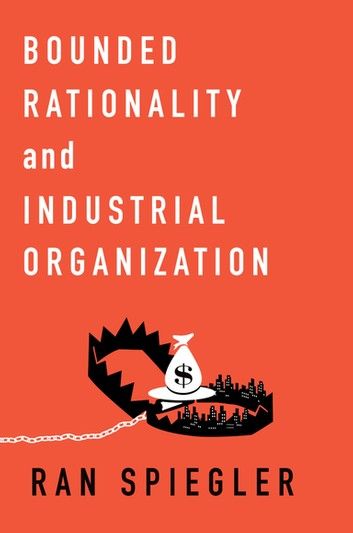| FindBook |
|
有 1 項符合
Ran Spiegler的圖書 |
 |
$ 1136 ~ 2879 | Bounded Rationality and Industrial Organization
作者:Ran Spiegler 出版社:Oxford University Press 出版日期:2011-02-18 語言:英文  共 2 筆 → 查價格、看圖書介紹 共 2 筆 → 查價格、看圖書介紹
|
|
|
Conventional economic theory assumes that consumers are fully rational, that they have well-defined preferences and easily understand the market environment. Yet, in fact, consumers may have inconsistent, context-dependent preferences or simply not enough brain-power to evaluate and compare complicated products. Thus the standard model of consumer behavior-which depends on an ideal market in which consumers are boundlessly rational-is called into question. While behavioral economists have for some time confirmed and characterized these inconsistencies, the logical next step is to examine the implications they have in markets. Grounded in key observations in consumer psychology, Bounded Rationality and Industrial Organization develops non-standard models of "boundedly rational" consumer behavior and embeds them into familiar models of markets. It then rigorously analyses each model in the tradition of microeconomic theory, leading to a richer, more realistic picture of consumer behavior. Ran Spiegler analyses phenomena such as exploitative price plans in the credit market, complexity of financial products and other obfuscation practices, consumer antagonism to unexpected price increases, and the role of default options in consumer decision making. Spiegler unifies the relevant literature into three main strands: limited ability to anticipate and control future choices, limited ability to understand complex market environments, and sensitivity to reference points. Although the challenge of enriching the psychology of decision makers in economic models has been at the frontier of theoretical research in the last decade, there has been no graduate-level, theory-oriented textbook to cover developments in the last 10-15 years. Thus, Bounded Rationality and Industrial Organization offers a welcome and crucial new understanding of market behavior-it challenges conventional wisdom in ways that are interesting and economically significant, and which in the end effect the well-being of all market participants.
|










